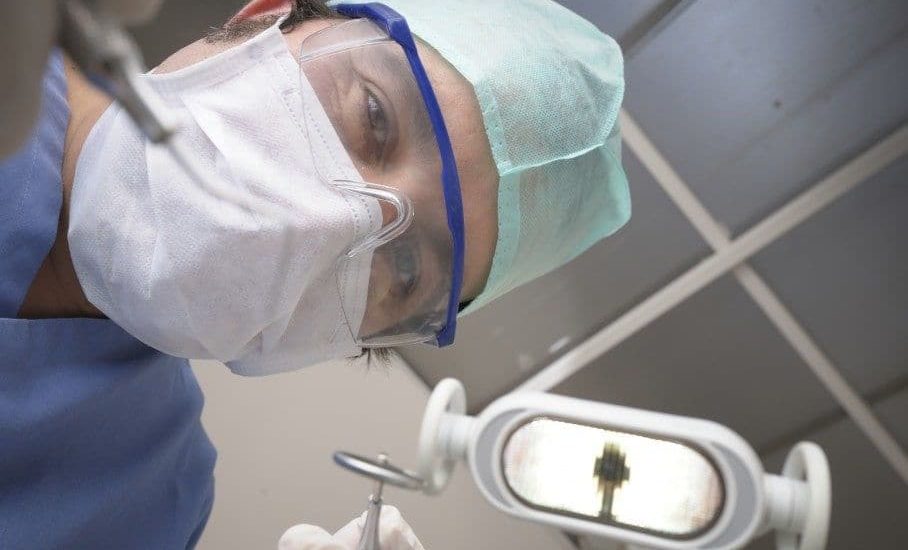
KJIPUKTUK (Halifax) – One of these days your small neighborhood dental office may well become part of a large corporation with one goal only, to make as much profit as possible. As profit becomes increasingly the driving force, it will become more and more difficult to implement universal dental care.
Corporate dentistry is a relatively new phenomenon in Canada. Following in the footsteps of the US and Australia, Canadian dental corporations are buying up assets of dental offices, owned by dentists, allowing them to assume control over the administrative aspects of the dental office (e.g. hiring, firing, bookkeeping).
Corporate dentistry is still in its early stages in Canada, employing only an estimated 2% of dentists1, however growth of corporate dentistry often occurs without public knowledge. The Dental Corporation of Canada, the largest dental corporation in the country, owns 160 offices yet it does not list its locations on its website, nor do affiliated offices reveal their relationship with the corporation to the public.
In Canada roughly a third of people lack dental insurance, and 6 million Canadians avoid the dentist each year due to financial constraints. The number of uninsured Canadians are only expected to rise as the baby boomer generation retires and loses employment related dental benefits, and as younger generations experience an increasing precarity of work, with jobs that are often lacking in health and dental benefits.
Profit over patients
To understand the potential problems associated with the rise of corporate dentistry in Canada, we should consider the ways US dental corporations (which employ slightly over 7% of US dentists) have undermined reasonably priced public dental care.
US dental corporations have a history of pushing for and providing unnecessary treatments to increase profits.
For example, according to a 2018 American Dental Association report “Samson Dental Partners and ImmediaDent were alleged to have engaged in fraudulent billing and excessive and unnecessary treatment. The two companies were allegedly “prioritizing corporate profits over patient care,” with non-dentists in management positions exerting influence on dental care decisions, according to the settlement agreement.”7
These corporations paid $5.1 million in a settlement to the state of Indiana.
In another case:
“The state Attorney General’s Office has reached a settlement with Aspen Dental Management [ADMI] requiring the company to pay $450,000 in civil penalties and to reform its business and marketing practices after accusing the company of pressuring dentists and dental hygienists at its offices, including six in the Buffalo area, to sell unneeded services to their patients.”8
According to a U.S. Senate Joint Staff Report on corporate dentistry, Aspen Dental has had similar settlements with 3 other state attorney’s general- Pennsylvania, Massachusetts and Indiana9.
It happens a lot, and this drive for profit undermines public programs, which are already underfunded, and further erodes public trust in the dental profession.
Subtly getting universities to buy in
Dentistry is a profession with minimal oversight. We can expect that corporate dentistry will exploit these vulnerabilities in the profession and test the legal boundaries in Canada, just as they have done in the US.
Along with aggressive marketing of supplemental and cosmetic procedures, corporate dentistry is sure to be a good investment.
In order to marginalize opposition from institutions that should be working in the public interest (eg. universities, hospitals), dental corporations can give those dental institutions large donations, ensuring they adopt an ideological framework that is compatible with their profit making. Otherwise, the donations disappear. This is done without a quid pro quo, but rather an implicit understanding between the parties involved.
For instance, Dalhousie University in Halifax, Nova Scotia, recently accepted a $1 million CAD donation from the Dental Corporation of Canada10. Universities have increasingly relied on such big money donations rather than taxpayer funding1.
Another example is a $250,000 donation from the Dental Corporation of Canada to the children’s hospital dentistry departments at the 5 largest departments in the country1. Large banking institutions and dental supply companies, who each have their own monied interests, engage in this practice as well.
The case for universal dental care, and why corporations oppose it
The donations from monied interest to dental institutions pale in comparison to the burden our private dental care system places on our public healthcare system.
According to a 2014 study in Ontario, doctors’ offices were visited every 3 minutes and emergency departments every 9 minutes for patients seeking treatment for dental pain. This costs taxpayers a minimum of $38 million per year for Ontario alone. In order to eliminate this inefficiency, we must ensure everyone has basic dental insurance. In order to do so in a cost-effective way, we need to minimize unnecessary profits1.
With dental institutions adopting an ideological framework friendly to profit making, it is easy to see how these institutions tepidly promote patchwork solutions to unmet dental needs of the population, rather than aggressively campaigning for publicly funded, universal dental care. For example, no dental school in the country has endorsed the federal NDP’s plan to provide universal dental care1.
A recent Ipsos poll found that 86% of Canadians surveyed support government funded dental care for those without insurance. Another poll from Abacus Data found 66% of respondents supported expanding the Canadian government run healthcare plan to include prescription drugs, dental and vision care1.
To follow the democratic will and succeed in implementing a universal dental plan in a cost-efficient way, we must first eliminate unnecessary profits from dental corporations and private health insurance companies. Doing so will become increasingly difficult as corporate dentistry covertly expands.
Click here for a fully annotated version of this article.
See also: Brandon Doucet: It’s time for free dental care for all Nova Scotians
Brandon Doucet is a practicing dentist He is interested in how institutions function and why they often do not meet fundamental principles of social justice.
With a special thanks to our generous donors who make publication of the Nova Scotia Advocate possible.
Subscribe to the Nova Scotia Advocate weekly digest and never miss an article again. It’s free!



